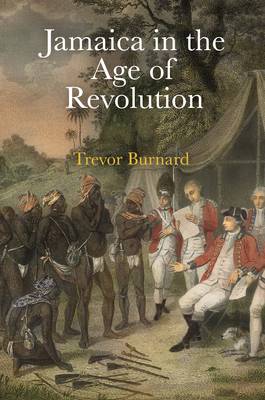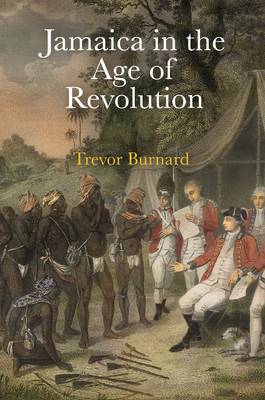
- Afhalen na 1 uur in een winkel met voorraad
- Gratis thuislevering in België vanaf € 30
- Ruim aanbod met 7 miljoen producten
- Afhalen na 1 uur in een winkel met voorraad
- Gratis thuislevering in België vanaf € 30
- Ruim aanbod met 7 miljoen producten
Zoeken
Omschrijving
A renowned historian offers novel perspectives on slavery and abolition in eighteenth-century Jamaica
Between the start of the Seven Years' War in 1756 and the onset of the French Revolution in 1789, Jamaica was the richest and most important colony in British America. White Jamaican slaveowners presided over a highly productive economic system, a precursor to the modern factory in its management of labor, its harvesting of resources, and its scale of capital investment and ouput. Planters, supported by a dynamic merchant class in Kingston, created a plantation system in which short-term profit maximization was the main aim. Their slave system worked because the planters who ran it were extremely powerful. In Jamaica in the Age of Revolution, Trevor Burnard analyzes the men and women who gained so much from the labor of enslaved people in Jamaica to expose the ways in which power was wielded in a period when the powerful were unconstrained by custom, law, or, for the most part, public approbation or disapproval. Burnard finds that the unremitting war by the powerful against the poor and powerless, evident in the day-to-day struggles slaves had with masters, is a crucial context for grasping what enslaved people had to endure. Examining such events as Tacky's Rebellion of 1760 (the largest slave revolt in the Caribbean before the Haitian Revolution), the Somerset decision of 1772, and the murder case of the Zong in 1783 in an Atlantic context, Burnard reveals Jamiaca to be a brutally effective and exploitative society that was highly adaptable to new economic and political circumstances, even when placed under great stress, as during the American Revolution. Jamaica in the Age of Revolution demonstrates the importance of Jamaican planters and merchants to British imperial thinking at a time when slavery was unchallenged.Specificaties
Betrokkenen
- Auteur(s):
- Uitgeverij:
Inhoud
- Aantal bladzijden:
- 400
- Taal:
- Engels
Eigenschappen
- Productcode (EAN):
- 9780812251920
- Verschijningsdatum:
- 3/04/2020
- Uitvoering:
- Hardcover
- Formaat:
- Genaaid
- Afmetingen:
- 163 mm x 239 mm
- Gewicht:
- 657 g

Alleen bij Standaard Boekhandel
+ 144 punten op je klantenkaart van Standaard Boekhandel
Beoordelingen
We publiceren alleen reviews die voldoen aan de voorwaarden voor reviews. Bekijk onze voorwaarden voor reviews.











